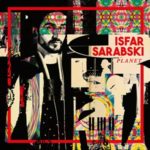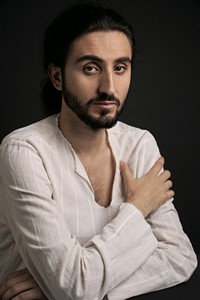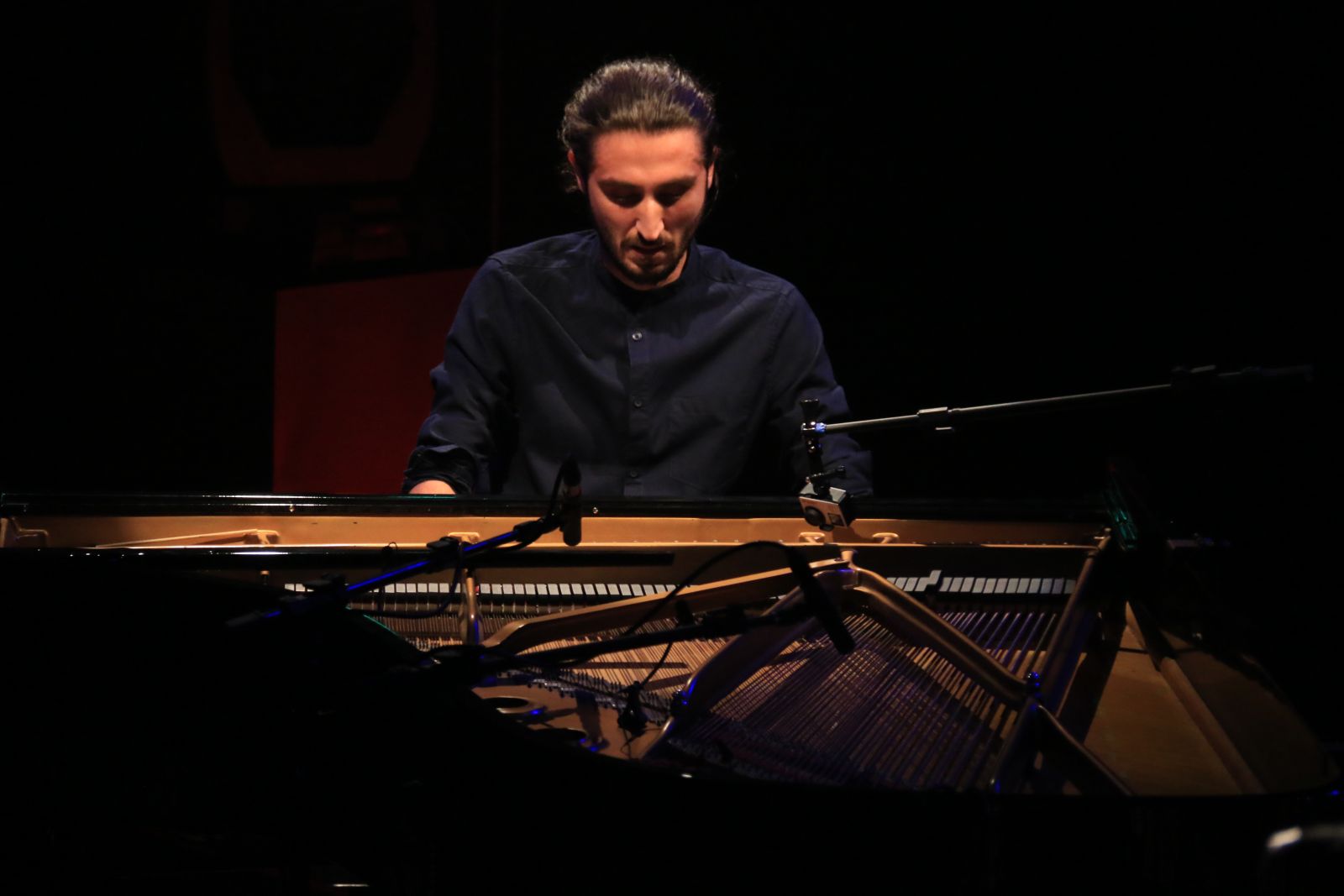A nod to Isfar Sarabski & "Planet": A clever mix of energy and emotions
The pianist, composer and arranger, Isfar Sarabski presents his album "Planet". At the head of a piano-bass-drums trio, the virtuoso musician also surrounds himself on certain titles with a string orchestra. It offers music that creates bridges between jazz, mugham and classical music. A few emotionally charged moments dot this album, bursting with energy.

Keyboard virtuoso, pianist Isfar Sarabski came to jazz after a solid classical training. On his album "Planet" to be released on April 30, 2021 at Warner Music , he brought together pianist Alan Hampton and drummer Mark Guiliana .
Propelled by this explosive rhythmic, he deploys a great energy on his keyboard and juggles with the octaves. Fortunately, a few sensitive moments constitute appreciable brackets of calm which temper the fiery effervescence of the pianist.
Isfar Sarabski
Born in 1989 in Baku (Azerbaijan), Isfar Sarabski began playing the piano at the age of 3. In 2007, he joined the Bulbul Music School then the Baku Academy of Music in the piano class of Farhad Badalbeyli. From this teaching he learns the rigor of the universe of the classical world. He then benefited from a scholarship granted by the President of his country and was named Honorary Artist of Azerbaijan. Thus, at 16, pianist Isfar Sarabski is already a promising young hopeful who performs in his country but also in Norway and Russia.
Nothing very surprising, because the music is in a way written in the DNA of this artist from a family of musicians. He is indeed the great-grandson of Huseyngulu Sarabski, musical pioneer and immense star of the Muslim world, singer (tenor) of opera, actor and author of plays. The young Isfar Sarabski also grows up in the middle of his father's vinyl collection which "… were literally [his] toys".
“I am fascinated by great black vinyl records… I remember precisely what I felt the first time I heard Dizzy Gillespie records or recordings of works by Bach and Chopin. At the first listening I felt that I had to go further “. Isfar Sarabski

Isfar Sarabski © Peter Hönnemann
They have contributed to its culture and its spirit of openness towards jazz, opera or mugham, this traditional and learned musical genre of Azeri music which leaves a preponderant place for improvisation. He is also interested in the songs of artists of his generation such as Jennifer Lopez, Christina Aguilera, Benny Benassi.
At the end of his studies at Berklee College of Music in Boston, Isfar Sarabski presented himself at the Solo Piano Competition of the 43rd Montreux Jazz Festival. On July 18, 2009, he won first prize (tied with Beka Gochiashvili) and impressed the jury with his phenomenal interpretation of Bill Evans' compositions. It was also on this occasion that he met Quincy Jones, who since then has been full of praise for this young prodigy. The following year he received the Zirva State Prize.
In 2011, the pianist formed and conducted his own trio with Moscow musicians Alexander Mashin on drums and Makar Novikov on bass. With them, Isfar Sarabski performs in many festivals and concert halls in North America, at the Apollo Theater in New York and in many jazz clubs in Europe, at the Ronnie Scott club in London, at the Duc des Lombards in Paris (in 2013) and in Paris in 2015 for the International Day of Jazz. After 2016 played in Dhafer Youssef's group and toured with him on his project "Birds Requiem" then "Diwan Of Beauty And Odd" in Europe and Oceania.
Fascinated by the world of electro, Isfar Sarabski approaches the leading groups of the electronic scene of Baku and his interest in electric music is confirmed since an electro album is also announced for the year 2021 after the release of his album. "Planet" (Warner) which is expected to be released on April 30, 2021 .
Along the tracks of "Planet"
Deja Vu opens the album with pseudo-classical arpeggios quickly tinged with a hint of beat rock which evolves into a jazz tune carried by the cinematic trio joined by the energetic Main Stream Strings Ensemble directed by Lev Trofimov . On Limping Stranger , the trio spares a lull in the tempo and power of sound. The double bass and the piano bring their respective nostalgia into dialogue while the drums encourage them and energize their exchanges.
Swan Lake is the only track in the repertoire which is not composed by Isfar Sarabski. Indeed, the pianist and the trio deliver a freely interpreted and unusual versionof Tchaikovsky's Swan Lake that the pianist and his trio perform in 7/8 instead of the usual 4/4, and with an ardor which may surprise, even disturb more than one. With the strings, Prelude then sheds his fill of tears and could claim to be part of the soundtrack of a romantic film.
Transit then comes with more vigor, the strings pass to the background while drums and piano take center stage and alternate caesura and punchy repeats until the final high point disheveled and colorful. In the meantime, the trio have fun and use the theme as a playground that it becomes background music or serves as a springboard for their exploits. Further on, a haunting leitmotif taken up in the bass of the keyboard calls the tar (Azerbaijani lute) of Shahriyar Imanov which transfigures The Edge into a complaint whose accents are carried by the power of the strings. The repertoire continues with a first version of the title Planet, a long solo of seven minutes where the leader exposes without restraint all his know-how on the keyboard.
.jpg)
Later, G-Man condenses all of the leader's influences. The song begins in an idiom that borrows a lot from classical then, carried by the rhythm, the tempo becomes more rock and the trio balances big sound. A jazz that makes you tap your foot, oscillate your head in rhythm and could invite the public to clap their hands. After that, no one is supposed to be unaware that the pianist masters all the styles to which he claims to be and which he performs in large dimensions. A song that should arouse the enthusiasm of the crowds!
On Novruz returns the tar and the ropes. After an energetic start where the Baku Strings Quartet is also present, the trio alternates flexibility and vehemence, jazz and traditional Azeri influences. A very beautiful way to evoke Novruz, this festival of the earth, of light, of the renewal of nature, this date of March 21 which celebrates spring, this Novruz inscribed since 2009 on the Representative List of the intangible cultural heritage of the humanity of the United Nations Educational, Scientific and Cultural Organization. It is easy to imagine the jubilation, the tables filled with food and everyone's jumps over the fires.
An orchestral version of Planet concludes the opus. Dynamic and emphatic, it borrows its codes from the soundtrack of a film, that of a pianist who came from Azerbaijan to conquer jazz… which he has achieved brilliantly elsewhere.
